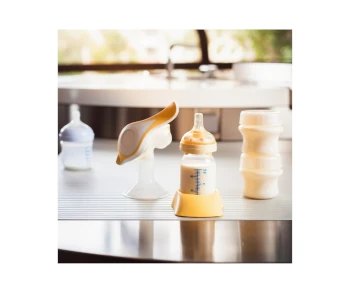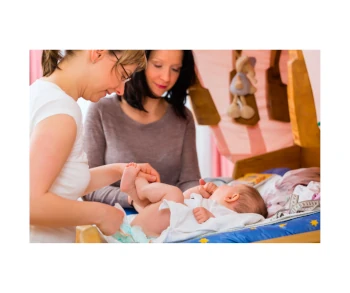Baby Feeding
 Ever since there have been babies, there have been conflicting views on how to feed them. The historical societal and medical opinions have swung like a pendulum over the decades. At the turn of the 20th century public health officials were championing breast feeding but alongside this they were leading a campaign for clean cows’ milk, since the French Scientist Louis Pasteur had discovered the existence of potentially contaminating microorganisms in food and developed pasteurisation.
Ever since there have been babies, there have been conflicting views on how to feed them. The historical societal and medical opinions have swung like a pendulum over the decades. At the turn of the 20th century public health officials were championing breast feeding but alongside this they were leading a campaign for clean cows’ milk, since the French Scientist Louis Pasteur had discovered the existence of potentially contaminating microorganisms in food and developed pasteurisation.
With the widespread availability of clean cow’s milk, bottle-feeding quickly gained popularity because it was convenient, scientific, and modern. Breast feeding fell out of vogue as it was seen to be antiquated and primitive. It remained this way until the 1970’s, when a combination of socio-political factors and improved medical technologies caused the breastfeeding pendulum to swing back in the other direction.
Breast Or Bottle
 Deciding the best way to feed a new baby is a very personal choice. Whatever the choice, feeding time is an important opportunity for bonding, emotional and physical comfort and connection and these are all absolutely possible to do whether your baby is breast fed or bottle fed. Some women have difficulty breastfeeding or are unable to and others may choose not to.
Deciding the best way to feed a new baby is a very personal choice. Whatever the choice, feeding time is an important opportunity for bonding, emotional and physical comfort and connection and these are all absolutely possible to do whether your baby is breast fed or bottle fed. Some women have difficulty breastfeeding or are unable to and others may choose not to.
Finding the best way to feed your baby can sometimes be difficult or stressful and some mums change the way they feed their baby because they’ve had problems or lost confidence. Whatever your reasons, you shouldn’t feel, or be made to feel, guilty or pressured about your decisions. Your baby needs you to stay healthy and happy, not stressed or worried.
World Health Organization recommendation
 The World Health Organization recommend that all babies are exclusively breastfed for 6 months, then introduce solid food while continuing to breastfeed for up to 2 years or for as long as mother and baby want to. There are lots of long-term health benefits to breastfeeding.
The World Health Organization recommend that all babies are exclusively breastfed for 6 months, then introduce solid food while continuing to breastfeed for up to 2 years or for as long as mother and baby want to. There are lots of long-term health benefits to breastfeeding.
However, there are many reasons why women decide not to breastfeed or to stop breastfeeding after a time. Whatever the reason, it’s your right to choose how to feed your baby and you can change your mind whenever you want to. It’s important that you’re happy about how you’re feeding your baby.
 Some parents decide to feed their baby a combination of breast and bottle. There are many practical, physical and emotional reasons why this may be a preferred option. Often there are several factors to consider, such as the short- and long-term health benefits for mummy and baby, financial considerations, comfort level with breast-feeding. It may also consider lifestyle characteristics, such as the time and convenience of one feeding method over another, return to work plans, and whether others might be involved in feeding.
Some parents decide to feed their baby a combination of breast and bottle. There are many practical, physical and emotional reasons why this may be a preferred option. Often there are several factors to consider, such as the short- and long-term health benefits for mummy and baby, financial considerations, comfort level with breast-feeding. It may also consider lifestyle characteristics, such as the time and convenience of one feeding method over another, return to work plans, and whether others might be involved in feeding.
Whatever the reason, it’s important that you are happy about how you’re going to feed your baby. If you’re struggling or feeling stressed or anxious about feeding your baby, it’s important to get support and advice. A good place to start could be your midwife or health visitor.
Baby Feeding
 By allowing your baby to feed whenever they need (whichever way you’ve chosen to feed them) will help them develop an appropriate regime that suits their needs. Your baby will let you know when they’re feeling hungry much more effectively than a clock, a book or someone else. Early signs to let you know they’re ready for more food are things like getting restless, sucking their fists or fingers, making notable murmuring sounds or rooting.
By allowing your baby to feed whenever they need (whichever way you’ve chosen to feed them) will help them develop an appropriate regime that suits their needs. Your baby will let you know when they’re feeling hungry much more effectively than a clock, a book or someone else. Early signs to let you know they’re ready for more food are things like getting restless, sucking their fists or fingers, making notable murmuring sounds or rooting.
A later hunger cue is crying but looking out for these earlier signs will help you respond to them before they start to cry. Feeding your baby is a wonderful opportunity to spend time with them and enjoy being in the moment, loving, cuddling and bonding them. They’ll be on the move in no time so this is a great way to make the most of this precious time.
See you soon,
Sally
